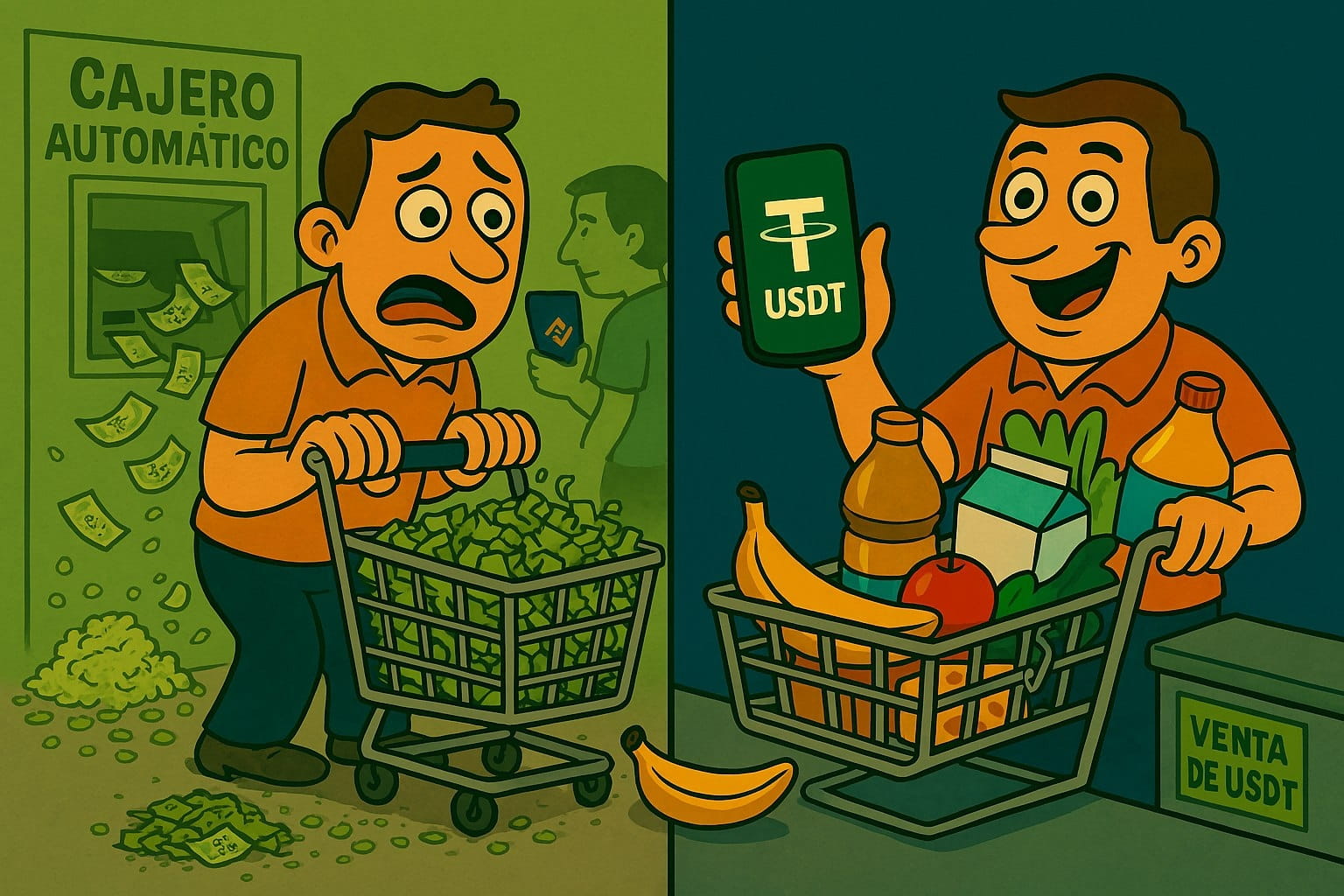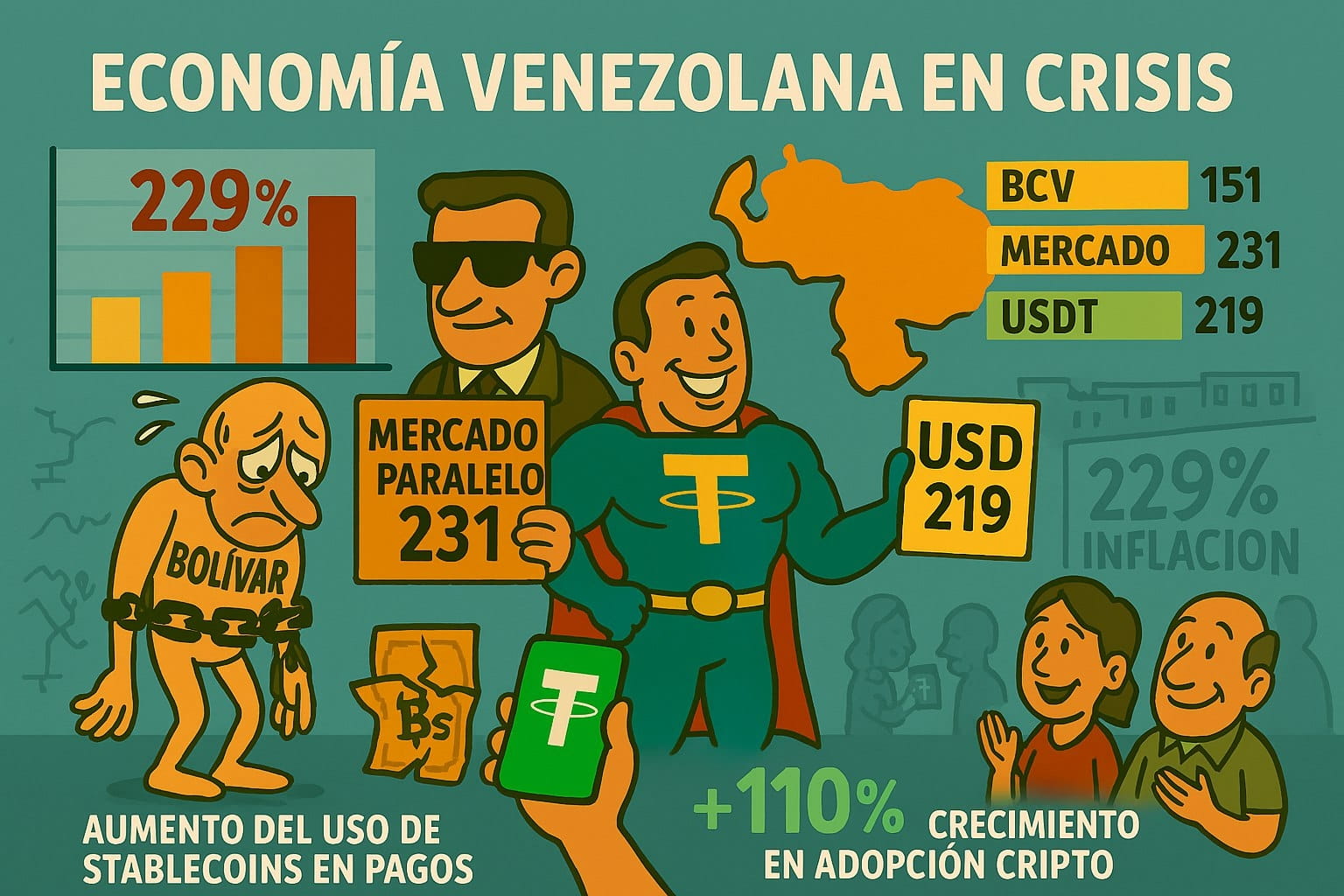In a country where the bolívar fades like water between fingers, millions of Venezuelans have found in a digital asset their financial lifeline. USDt, the stablecoin locally known as "Binance dollars", has become the de facto currency in an economy shattered by inflation, reaching an annual rate of 229%.

USDt, the currency that united all Venezuelans
What started as a tool for cryptocurrency enthusiasts has today become the pillar of daily economy. "People and businesses prefer to set prices for goods and services in dollars and receive payment in the same currency," explains Mauricio Di Bartolomeo, who fled Venezuela before co-founding Ledn in 2018. USDt now functions both as an enhanced dollar and a financial equalizer among social classes.
From small businesses to condominium payments, security services, and even gardening, everything is quoted and paid in stablecoins. The bolívar, the national currency, is virtually dead in daily trade, displaced by hyperinflation, strict capital controls, and a fractured exchange rate landscape.
Three exchange rates: Who benefits from $USDT ?
Currently, there are three exchange rates for the dollar in Venezuela:
Official rate from the Central Bank (BCV): 151.57 bolívares per USD
Parallel market rate: 231.76 bolívares per USD
Exchange rate of USDt on Binance: 219.62 bolívares per USD
The liquidity and reliability of USDt make it the most used exchange rate among providers and consumers. State-controlled entities remain tied to the BCV exchange rate, but most market participants prefer the efficiency and accessibility of the Binance dollar.

Crypto to the rescue: Venezuela, the ninth country with the highest crypto adoption
According to the Chainalysis 2025 Global Crypto Adoption Index, Venezuela ranks #18 globally and #9 when adjusted for population. Stablecoins represented 47% of all Venezuelan crypto transactions below $10,000 in 2024, and overall crypto activity increased by 110% last year.
Capital controls and parallel markets: the economy that reinvented itself
The capital controls imposed by the Venezuelan government have also led to parallel markets for foreign currencies and digital assets. Official USD allocations are supposedly given to companies connected with the regime, which resell dollars at parallel exchange rates for profit.
"Capital controls also create a parallel market for cash and stablecoins, as economic actors refuse to accept the worthless local currency as payment," explains Di Bartolomeo. "When and if they reluctantly accept the local currency, they rush to convert it to stablecoins or USD."
Crypto where fiat fails: the repeating pattern
In countries facing monetary instability and capital controls, the adoption of crypto accelerates as people seek alternatives to failing currencies. Venezuela, Argentina, Turkey, and Nigeria follow a similar pattern, with locals turning to stablecoins in the face of rampant inflation.
In a world where the boundaries between the physical and digital are becoming increasingly blurred, Venezuela has become a living laboratory of how stablecoins can replace failed national currencies. The question that lingers is whether this digital transition is a temporary band-aid or the first step towards a new global financial system where stablecoins could play a central role, even in stable economies.

